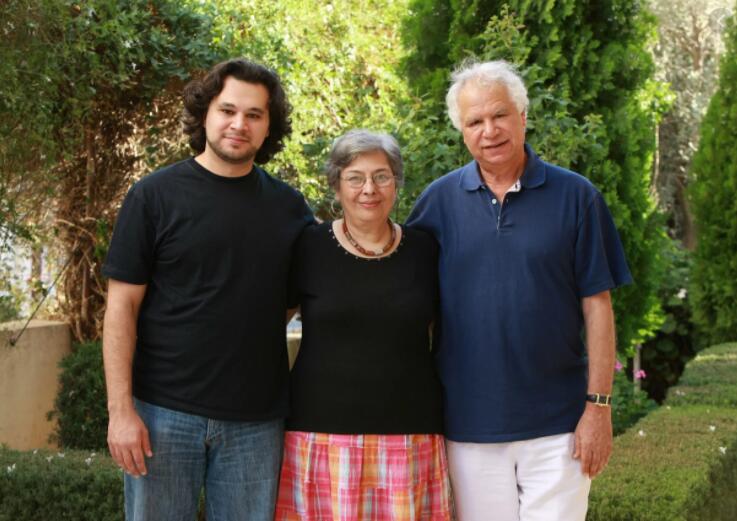He agonised about returning. In a sense, displacement was not unusual for him; it was the natural condition of a poet, the outsider, critically observing the world and distanced from its norms.
他為返鄉而煩惱。從某種意義上說,四處漂泊對他來說并不罕見;這是詩人常見的狀態,他們作為一個局外人,批判地觀察這個世界,遠離既定的規章制度。
He could still work, travelling and lecturing as a mouthpiece for his unseen, unregarded people. Displacement just added another, arbitrary, layer. And whatever else he had lost, he had kept his Palestinian voice: “The fish/even in the fisherman’s net/ Still carries/The smell of the sea.”
他仍然可以工作、旅行和演講,作為那些看不見的、被忽視的人們的喉舌。漂泊只是添加了一層隨意而已。不管他失去了什么,他一直保持著他那巴勒斯坦人的聲音:“魚,即使身陷漁網,仍然吐納著大海的氣息。”

What would it mean, anyway, if he returned? Could he go back to who he was, where he was? Both he and the place would be irrevocably changed. He and his wife Radwa, an Egyptian novelist who also put his poems expertly into English, were separated by his exile for 17 years; when they reunited, the two households took a long time to readjust. Besides, as a poet, place was not essential.
如果他回到故鄉,這又意味著什么呢?他還能回到原來的樣子,回到他原來的地方嗎?他自己和故鄉都將發生不可挽回的變化。他的妻子拉德瓦(Radwa)是一位埃及小說家,她也將丈夫的詩歌熟練地譯成了英語。巴爾古提漂泊在外,導致兩人分離了17年。等再次相聚時,兩個家庭都花了很長的時間來適應,此外,作為一個詩人,地方并非關鍵因素。
He could work in time instead, trying to dwell in the present and the future rather than the past. For it was patches of time—a day of gathering figs from the courtyard tree, an afternoon drinking milkshakes in Rukab’s garden café, the morning ritual of overhearing his grandmother’s whispered prayers—that he really wanted to retrieve, rather than place.
他可以在時光里工作,活在當下和未來,而不是過去。因為他真正要找回的是一段段的時光——某一天從庭院的樹上摘無花果,下午在魯卡布的花園里喝奶昔咖啡,或是在早晨聽到祖母低聲祈禱的儀式。
譯文由可可原創,僅供學習交流使用,未經許可請勿轉載。











